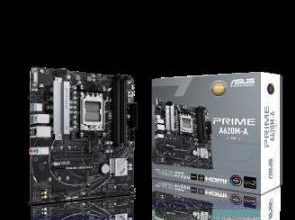NFTs and Intellectual Property: Legal Considerations

NFTs and Intellectual Property: Legal Considerations
Introduction
In recent years, Non-Fungible Tokens (NFTs) have gained immense popularity in the digital world. Artists, collectors, and enthusiasts are flocking to NFT marketplaces to buy and sell unique digital assets. However, with this phenomenon comes a range of legal considerations, particularly concerning intellectual property (IP) rights. This blog post dives into the legal aspects surrounding NFTs, providing insights into how intellectual property intersects with this emerging technology.
What is an NFT?
NFTs are blockchain-based digital assets that represent ownership or proof of authenticity of a unique item or piece of content. Unlike cryptocurrencies, NFTs cannot be exchanged on a like-for-like basis as each NFT is distinct and irreplaceable. This uniqueness has sparked a revolution in the art world, allowing artists to monetize their digital works and collectors to own one-of-a-kind pieces.
How Does Intellectual Property Relate to NFTs?
Intellectual property encompasses copyrights, trademarks, and patents, protecting the creations of the human mind. When it comes to NFTs, intellectual property plays a crucial role in ensuring that artists’ rights are protected, preventing unauthorized use or reproduction of their work.
Legal Considerations for Artists and Creators
1.
Copyright Protection
Artists should ensure they hold the copyrights to their original work before minting and selling NFTs. Copyright registration provides evidence of ownership, making it easier to enforce your rights in case of infringement.
2.
Licensing and Usage Rights
Artists can consider attaching licensing terms to their NFTs, specifying how buyers can use, display, or reproduce the digital assets. This allows artists to maintain control over their work and potentially generate additional revenue through licensing fees.
FAQs
1.
Can NFTs infringe on someone’s intellectual property?
Yes, if an NFT infringes on someone’s intellectual property rights, it can lead to legal consequences. Artists should always ensure they have the necessary permissions or licenses before minting and selling NFTs.
2.
Can copyright be transferred through the sale of an NFT?
No, owning an NFT does not automatically transfer copyright ownership. Copyright ownership must be explicitly transferred through a separate agreement or contract.
3.
What happens if someone reproduces an NFT without permission?
If an NFT is reproduced without permission, it may be considered copyright infringement. The original creator can pursue legal action to protect their rights and seek damages for any losses suffered.
Conclusion
As NFTs continue to reshape the digital landscape, understanding the legal considerations surrounding intellectual property rights is crucial for both artists and buyers. Artists should safeguard their copyrights and consider licensing options, while buyers should ensure they acquire NFTs from legitimate sources. By navigating these legal considerations, the NFT ecosystem can flourish while upholding the rights of creators and protecting the value of these unique digital assets.



